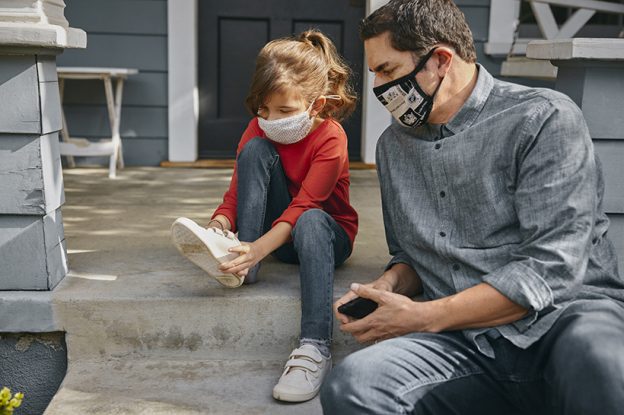
Risk of severe COVID-19 higher for patients who recently needed asthma care
A study of Kaiser Permanente Southern California members diagnosed with COVID-19 found that patients who needed clinical visits for asthma care in the 12 months prior to infection faced a higher risk of severe COVID-19 outcomes than patients who did not have asthma.
Of patients who had recent asthma-related visits, those who also received medications for their asthma had a lower risk of severe COVID-19 than those who did not. These findings appear Aug. 10, 2021 in The Journal of Allergy and Clinical Immunology: In Practice.
“The take-home message is that, if your asthma needs treatment, don’t be afraid to get the care and medications you need,” said the study’s senior author Anny H. Xiang, PhD, MS, director of the Division of Biostatistics Research at the Kaiser Permanente Southern California Department of Research & Evaluation.
The study also found that people with chronic obstructive pulmonary disease (COPD) had a higher risk of severe COVID-19 than those without COPD.
Clarifying the link between asthma and COVID-19
Earlier studies have examined associations between asthma and COVID-19, but most of those efforts have not distinguished between different subgroups of asthma patients, and their findings have been inconsistent.
“We wanted to elucidate the details of the relationship between COVID-19 and asthma in order to help clinicians and patients make informed decisions,” said the study’s co-lead author Brian Huang, PhD, MPH, a biostatistician with the Department of Research & Evaluation.
To do so, the study team analyzed the electronic health records of the more than 60,000 Kaiser Permanente Southern California members who were diagnosed with COVID-19 between March and August 2020. To help ensure statistical soundness of any observed links with asthma, they accounted for other factors that could be associated with COVID-19 severity—such as age, household income, race/ethnicity, and other health issues.
The analysis revealed that people with a history of asthma who needed clinical visits for asthma care in the year prior to infection were more likely than those without asthma or COPD to experience COVID-19-related hospitalization, intensive respiratory support, and admission to an intensive care unit within 30 days. However, of these patients, those who took medications for their asthma were 25% less likely to experience these severe COVID-19 outcomes than those who did not receive asthma medications.
Meanwhile, patients with a history of asthma who did not need a recent clinical visit for asthma care did not face any elevated risk of COVID-19 severity—regardless of whether they recently received asthma medication.
And because asthma and COPD are often studied together, the researchers also examined links between COPD and COVID-19 severity. They found that COPD patients faced an increased risk of COVID-19 related hospitalization, intensive respiratory support, and death.
Asthma patients should stick with their medications
“Our results suggest that patients who needed recent asthma care may have gotten some protective benefit from their medication,” Dr. Huang said. “At the very least, medication did not appear to put them at increased risk.”
The new findings could help ease concerns some people had that asthma medications may compromise the immune system and open up patients to COVID-19 risks.
This study was an offshoot of a larger study investigating the effect of air pollution on COVID-19 severity funded by National Institute of Environmental Health Sciences. Asthma and COPD are some of the most important comorbidities associated with air pollution. The researchers were able to rapidly pivot and conduct this study alongside their ongoing investigation of air pollution on COVID-19. Collaborators of this study include researchers from the Environmental Health Centers at the University of Southern California.
Dr. Xiang notes that the large and diverse patient population of Kaiser Permanente Southern California, combined with detailed electronic medical records, enabled this study. “Without the electronic records of patients’ past asthma care, this study would not have been possible,” she said.





